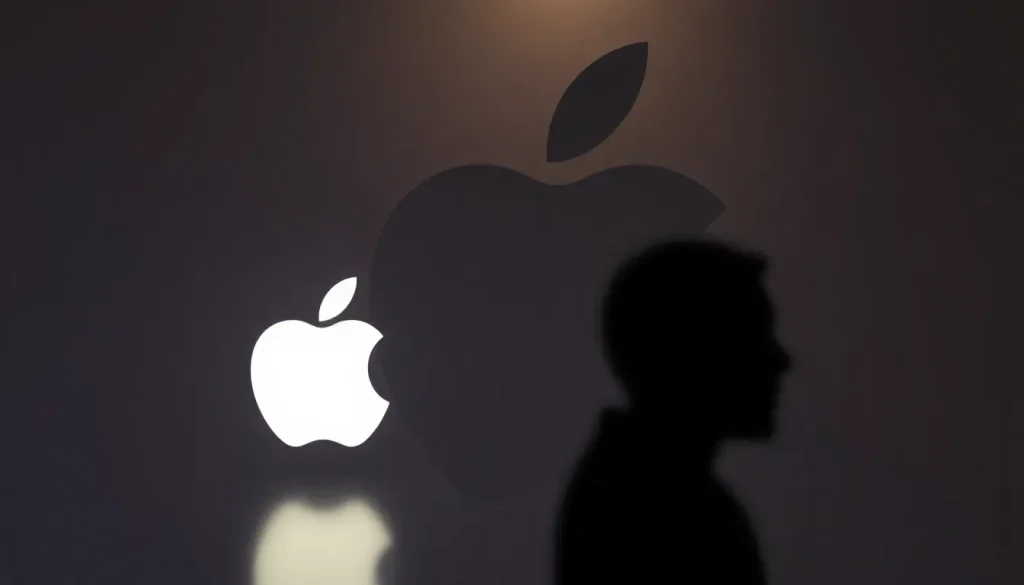Apple faces allegations of terminating employee for religious beliefs

In a world where corporate policies often clash with personal beliefs, the case of an Apple employee who was allegedly fired due to his religious practices has sparked significant attention. The implications of such accusations not only highlight the challenges faced by individuals in the workplace but also raise questions about corporate responsibility and legal boundaries. This incident serves as a reminder of the importance of understanding employee rights and the legal protections in place for religious accommodations.
At the forefront of this issue is a recent lawsuit filed by the U.S. Equal Employment Opportunity Commission (EEOC) against Apple, alleging violations of the Civil Rights Act. The outcome of this case could set important precedents for how large corporations handle requests for religious accommodations in the future.
Overview of the lawsuit against Apple
The EEOC has initiated a lawsuit against Apple, targeting the company's alleged failure to provide reasonable religious accommodations and engaging in retaliatory actions against an employee. The complaint states that Apple's Reston, Virginia location is in violation of Title VII of the Civil Rights Act of 1964, which prohibits employment discrimination based on religion.
The lawsuit centers around an employee who had dedicated 16 years to the company, working as an Apple Genius. Despite receiving consistently positive performance evaluations, the situation took a turn when he converted to Judaism in 2023. Upon his request for accommodations related to Shabbat, a significant religious observance for Jews, the store manager denied his request, citing changes in Apple's scheduling policies.
Shabbat, observed from sunset on Friday to nightfall on Saturday, prohibits certain types of work. This denial forced the employee into a position where he felt compelled to work on Shabbat, directly contradicting his religious beliefs. Following his request, he faced disciplinary actions concerning alleged violations of grooming standards. Ultimately, after reminding his supervisor of an imminent religious holiday, he was terminated under the pretext of non-compliance with grooming policies.
Understanding religious accommodations in the workplace
Religious accommodations are adjustments made by employers to allow employees to observe their religious beliefs without undue hardship on the business. According to the EEOC, employers are required to consider such requests unless they can demonstrate that accommodating an employee's religious practice would cause significant difficulty or expense.
- Title VII of the Civil Rights Act: This federal law prohibits employment discrimination based on race, color, religion, sex, or national origin.
- Reasonable accommodation: Employers must make adjustments for employees’ religious practices unless it creates an undue hardship.
- Examples of accommodations: Flexible scheduling, voluntary shift swaps, job reassignments, and modifications of workplace policies.
Employers are encouraged to engage in an interactive process with employees to explore possible accommodations that respect their religious practices while balancing the operational needs of the business. This case emphasizes the necessity for companies to have clear policies in place regarding religious accommodations and the importance of training for management on these policies.
Discrimination suits are nothing new for Apple
Apple's legal troubles regarding discrimination are not isolated incidents. The company has faced several lawsuits over the years related to various forms of discrimination, including race, gender, and sexual orientation. For instance, in 2022, a former patent attorney filed a suit against Apple citing harassment and discrimination after reporting inappropriate behavior from a male colleague.
Furthermore, in 2021, the #AppleToo movement emerged, where ex-employee Cher Scarlett and others called attention to systemic issues of racism, sexism, and pay inequity within the company. This grassroots campaign highlighted how many employees felt their complaints had been overlooked or dismissed by management.
These cases illustrate a broader trend within large corporations where employees are increasingly voicing concerns about workplace discrimination and demanding accountability. This momentum reflects a societal shift towards greater awareness of diversity and inclusion in professional settings.
Is it illegal to fire someone for religious reasons?
Under federal law, it is indeed illegal to fire an employee for reasons related to their religion or religious practices. Title VII of the Civil Rights Act provides employees with protections against discrimination based on religion.
The law also prohibits retaliation against employees who raise concerns or complaints regarding discrimination. Employers must ensure that their actions are based on legitimate business reasons that are unrelated to the employee's religion or religious practices.
- Documentation: Employers should keep thorough documentation of employee performance and any disciplinary actions taken to protect against claims of retaliation.
- Training: Providing training to management on the importance of religious accommodations and anti-discrimination laws can help mitigate risks.
- Clear policies: Establishing and communicating clear policies regarding discrimination and accommodations is crucial for fostering an inclusive work environment.
Corporate responsibility and the implications for Apple
As a leading technology company with a global presence, Apple holds a significant responsibility to uphold ethical employment practices. The accusations made against the company in this lawsuit could have serious implications for its reputation, employee morale, and legal standing.
Public scrutiny of corporate behavior is increasing, and consumers are more likely to support companies that prioritize employee rights and inclusivity. The outcome of this lawsuit may influence how Apple and similar corporations approach employee relations and religious accommodations in the future.
Moreover, this case serves as a cautionary tale for businesses, emphasizing the need to prioritize compliance with employment laws and to foster a workplace culture that respects the diverse beliefs of its workforce.
Further reading and resources
For those interested in exploring more about workplace discrimination and employee rights, the following resources are invaluable:
- U.S. Equal Employment Opportunity Commission - Provides comprehensive information on employees’ rights and employer responsibilities.
- American Civil Liberties Union - Offers insights on civil liberties, including workplace rights.
- Nolo - A legal resource for individuals seeking information on employment law.
As this lawsuit unfolds, it will be crucial to observe how it influences corporate policies and employee rights in the technology sector and beyond.
In light of these developments, we encourage readers to stay informed and engaged with discussions surrounding workplace rights and discrimination by viewing this relevant video:




Leave a Reply